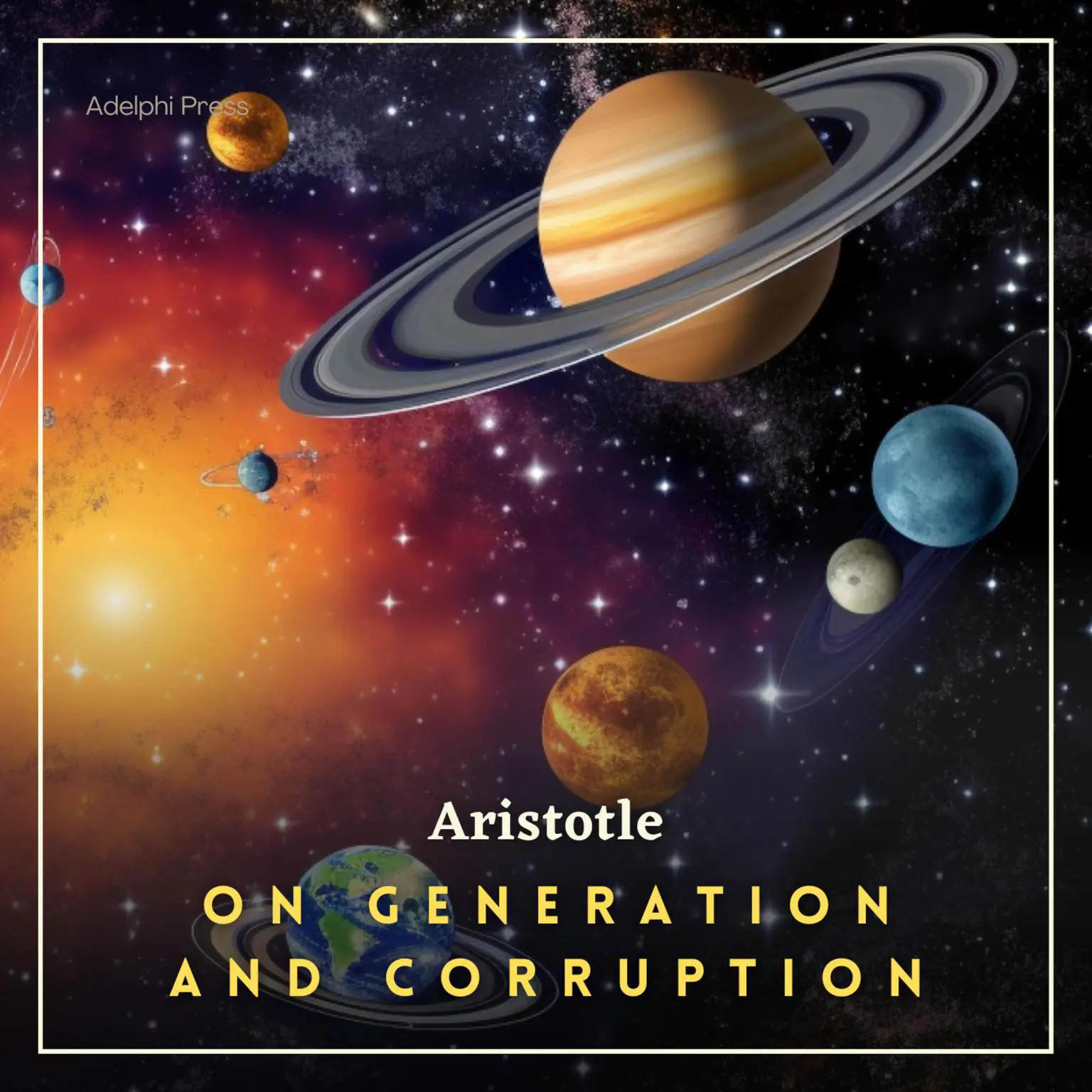 Play Audiobook Sample
Play Audiobook Sample
On Generation and Corruption Audiobook
 Play Audiobook Sample
Play Audiobook Sample
Quick Stats About this Audiobook
Total Audiobook Chapters:
Longest Chapter Length:
Shortest Chapter Length:
Average Chapter Length:
Audiobooks by this Author:
Publisher Description
On Generation and Corruption is a scientific work written by Aristotle in which he explores the concepts of change, decay, and permanence in the natural world. The book is divided into two main sections: the first deals with the nature of change and motion, while the second focuses on the concept of generation and corruption. Aristotle argues that everything in the natural world is subject to change, and that this change can be either accidental or substantial. Accidental change refers to changes in the properties or characteristics of an object, while substantial change refers to a change in the object's very essence or being. He also argues that change can only occur through motion, which is the transfer of potentiality to actuality. Read in English, unabridged.
Download and start listening now!
On Generation and Corruption Listener Reviews
Be the first to write a review about this audiobook!
About Aristotle
Aristotle (384–322 BC) was a Greek philosopher, scientist, and physician. As a young man, he became a student under Plato in Athens. In 342, he became the tutor of young Alexander the Great in Macedonia. After that, Aristotle returned to Athens to establish his own school and research institute, the Lyceum. His writings have profoundly affected the whole course of philosophy, from ancient times to the present.






















